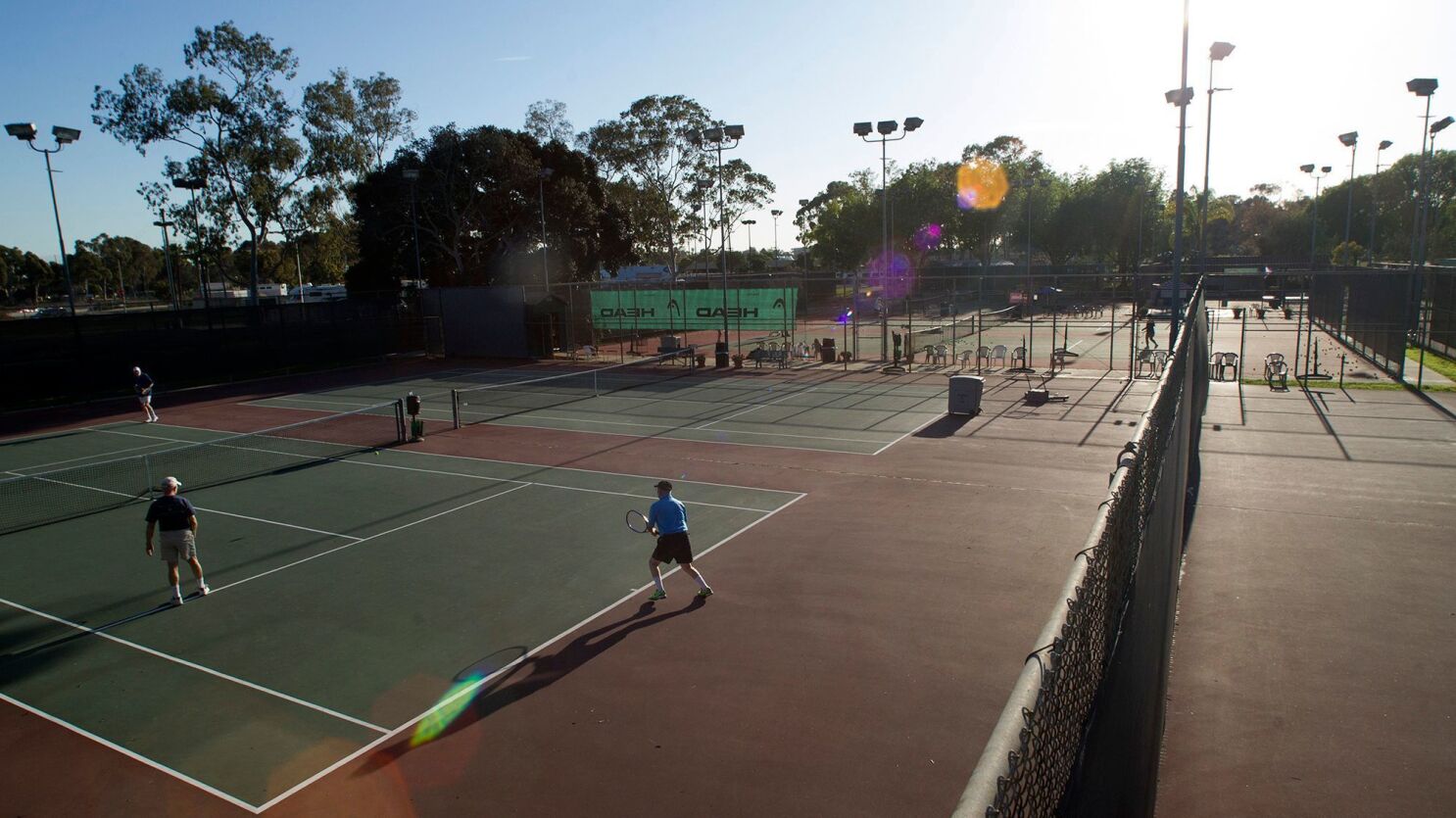Orange County residents showed up en masse to challenge city council’s selection of the Costa Mesa Tennis Center operator.
Over 100 impassioned community members swayed the decision-making process of the Costa Mesa City Council on July 18th. City staff and City Council seemed determined to select a “corporate” type operator based on presentation, revenue sharing and diversity, but residents were having none of it. Council’s proceedings were dramatically reshaped by a steadfast community standing up for their preferred management team, Top Seed.
For over six months, city staff had been evaluating Request for Proposals (RFPs), scoring based on categories such as Grasp of Project, Approach, Qualifications and Experience, Communication, and Quality of Presentation. But despite their efforts, it became clear that the council’s chosen metrics were not reflective of the community’s own measure of value.
Agape Tennis Academy, which had topped the council’s scoring rubric, was surpassed by the outpouring of support for the third-ranking team, Top Seed, led by the Ball family. CMTC member Cory Stewart summed up the sentiment, stating, “It’s just disheartening…those words you put on there, as (to) how the qualifications that you made, they’re just words…there was no heart in it. It was just words.”
Even amid confusion over some of the council’s scoring categories, the community members championed their favored team. This groundswell of support underscored the significant influence the Ball family, including tennis professional Syd Ball and his sons Carsten and Cameron, had on the local tennis scene.
In a powerful defense of Top Seed, esteemed tennis coach Dick Gould highlighted the unique and irreplaceable role of the Ball family in the CMTC. Gould stressed that the true value of the tennis center lay not in the physical facilities but in the devotion, expertise, and communal spirit that Top Seed brought to the center.
The massive show of support was not just from the veterans of the center. Community members, some with decades-long associations and others relatively new, all passionately voiced their desire to retain the management that had fostered a sense of belonging and respect.
Margo Ferris, a 30-year member of the center, succinctly captured the disconnect between the council’s process and the community’s desires, stating, “I don’t find that you took a lot of time to get community input.”
John Tenny further challenged the council, urging them to listen to their constituents. He insisted that their voices be the true guiding force in determining whether a change was indeed necessary.
As the testimonies continued, the council became increasingly aware of the unquantifiable value of Top Seed and the Ball family. The community praised their unwavering dedication, sense of community, respect for the game of tennis, and the familial atmosphere they cultivated.
Kara McClain, voicing her support, encapsulated the plea of the community. She asked the council to recognize the irreplaceable familial environment that the Ball family had cultivated over the years and to reconsider their decision based on these sentiments.
This overwhelming outcry made a significant impact. Recognizing the strong community sentiment, the city council acquiesced and supported Top Seed.
In a testament to the community’s impact, a relieved Colton, a young tennis player, said, “I would be so sad if they did not get to run the tennis center. I would not know where I’d play tennis. Costa Mesa Tennis Center would not be my happy place anymore without them.” Thankfully, due to the power of community activism, he and many others won’t have to face that change.

